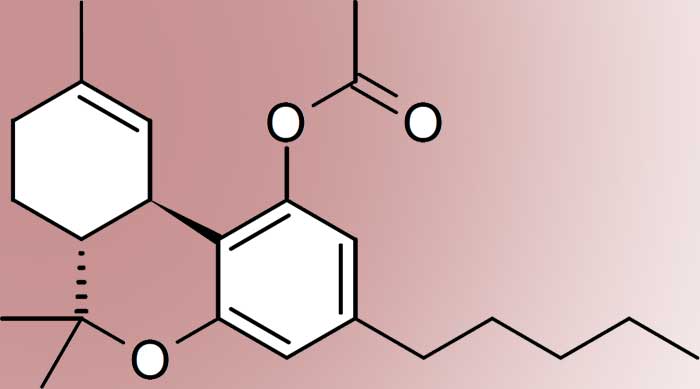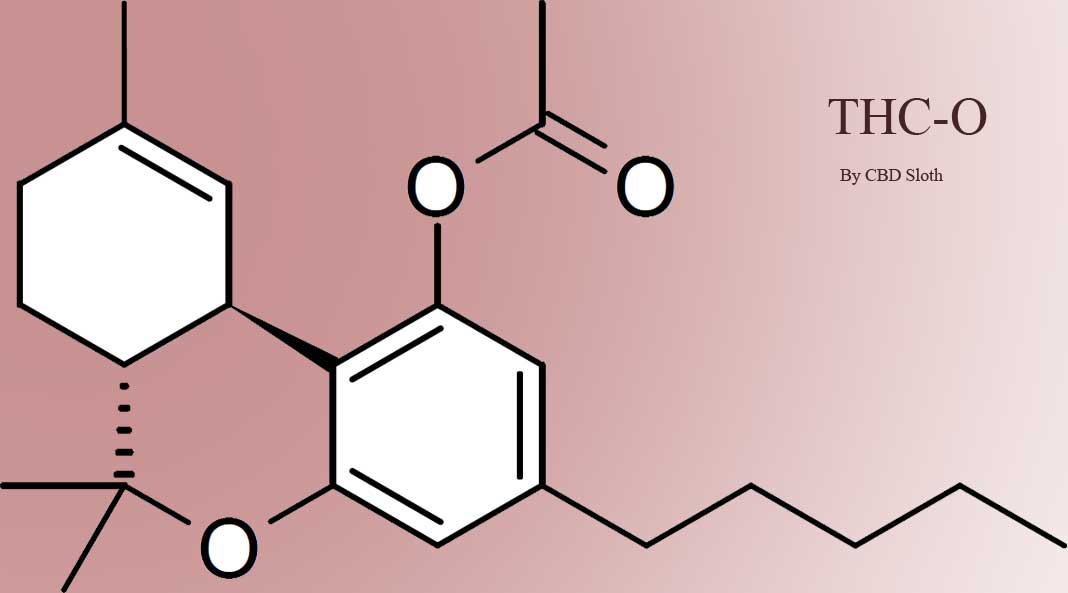Back a couple of years ago I spent a lot of time writing about the different compounds found in cannabis, however I haven’t as of late, but the attention around THC-0-Acetate made me feel it was time to dive back in.
As with any article of this nature, I want to highlight that I’m not recommending the usage of THC-O, I’m writing this from a research perspective.
What Is THC-O?
THC-O is the acetate ester form of THC (the ester form of acetic acid), hence why it is also commonly known as THC-O-Acetate. It’s also occasionally called ATHC (not to be confused with THCA).
It’s a non-natural cannabinoid, meaning it is not directly derived from the hemp plant in the same way in which you might extract CBD, CBG or CBC.
So How Is THC-O Synthesized?
THC-O is produced in a laboratory environment rather than in nature, while it’s not easy to make. Acetic anhydride, a highly corrosive chemical, is used to synthesize THC-O, combined with the Delta-8 molecules after the Delta-8 THC has been extracted from hemp.
Acetic anhydride can irritate and burn the skin, not to mention your eyes, while this clear colourless liquid is commonly used in pharmaceuticals and the industrial synthesis of acetate monomers. As it is so highly corrosive, it needs to be handled with expert machinery in a lab environment.

Why All The Media Attention?
First and foremost, THC-O has psychoactive effects and can ‘get you high’, hence why so much attention has been paid to the synthetic cannabis compound.
Also, the legality of these new compounds fall outside of the current law systems, as our laws are based around delta-9-tetrahydrocannabinol. This means that hypothetically, these can be bought without any legal issues. It should come without surprise that I should state at this point I don’t recommend purchasing these ‘legal highs’.
You might have noticed I mentioned Delta-8 THC earlier on, well this is an isomer of delta-9 THC, the one we all know and talk about, however these are considered legal still in many countries (not all).
How Can THC-O Be Consumed?
While I haven’t personally witnessed a product containing THC-O, I have read and heard that they can come in all the conventional methods. People have spoken about taking THC-O in a vape, in the form of edibles and gummies, as well as in tinctures.
It’s maybe worth quickly mentioning that this cannabis compound is not water soluble, just like with CBD and CBG, it’s fat soluble.
What Effects Does THC-O Have?
I’ve already mentioned the psychoactive effects of THC-O, while this compound will get you ‘high’. From other articles I have found online, many put it somewhere between 2-3 times as strong as delta 9 THC.
Of course, none of these seem to come from clinical studies or deep investigations over a long period of time, they’re purely subjective testimonials, which to me doesn’t offer much detail in regards to the potential side effects that could be associated with them.
One other interesting note in this area is that the anecdotes seemed to highlight a different high to the traditional THC-9 effects, in that people hallucinated more, creating a more psychedelic high.
Is THC-O Stronger Than Delta-8?
From what I have found online, it seems that THC-O is significantly stronger than Delta-8 and Delta-9 THC.
So if it’s so strong, why are people interested? From what I can pertain, again adding my own opinion to the equation, it’s not based on recreative use, as it is far too strong for this purpose. Instead, it is in relation to whether any medical application could be achieved from THC-O. For this to be known, it would take years of clinical studies, which looks unlikely at this point in time.



